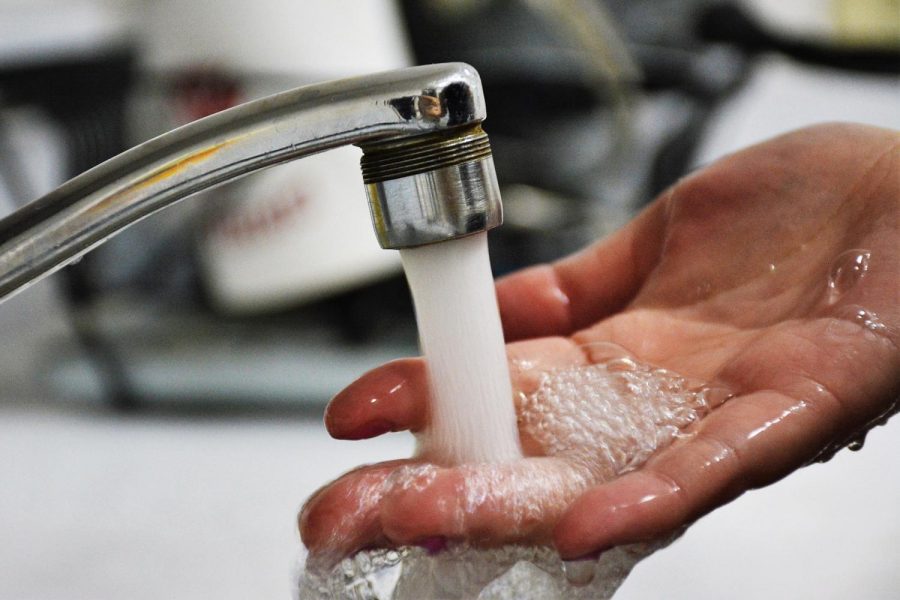Pullman may use alternative water source in future
Pullman could use Palouse River as direct water source
HARRINA HWANG | Evergreen photo illustration
The Palouse Basin Aquifer Committee monitors the aquifer that holds the Palouses’ main source of water, and raises awareness of water consumption.
September 14, 2022
The Pullman City Council heard presentations regarding water conservation and revitalizing downtown Pullman during its meeting Tuesday night.
The Palouse Basin Aquifer Committee would like to prevent a lack of access to clean water in Pullman and find an alternative water supply to the Palouse Groundwater Basin, said Cara Haley, Pullman’s city engineer and PBAC member.
PBAC favors a plan that would use water directly from the south fork of the Palouse River for Pullman, diverting surface water through a pipeline and a water treatment plant, said PBAC Executive Director Céline Acord. Paradise Creek would serve as Moscow’s main water source.
This plan also specifies that the Palouse River will be in direct use for eight months of the year while Paradise Creek will be in direct use for four months per year. With this plan, PBAC hopes to see an additional 15% water conservation rate, allowing it to reach 80% of its conservation goal, Acord said.
Acord said PBAC favors this plan because it will provide a long term water source, and it believes the option will be inexpensive compared to other proposals.
In the future, Acord said PBAC hopes to see a community-wide water preservation plan, further refinement to their proposal to conserve more water, a plan for water storage and further funding discussions.
Both WSU and University of Idaho are member entities of PBAC, Haley said.
Project Downtown Pullman
Public Works Director Shawn Kohtz said Project Downtown Pullman, which is organized by the Welch Comer consultant team, completed its feasibility phase. The next steps are preliminary design work, or phase 2, which will be worked on between now and construction.
Four elements of the downtown master plan are moving forward, Kohtz said. While $9,100,000 are available in funding, the total engineering cost is $9,400,000.
The Main Street, Grand Avenue, Pine Street, and Olsen Street plans have been approved, amounting to $1,156,400, he said.
Kohtz said he hopes they will be entering the construction stage by 2023.
Lawsuit Support
The next item was a resolution for if the mayor would sign two documents in support of the Washington Attorney General’s lawsuit against opioid distributors.
Thaddeus O’Sullivan said all local parties involved have to sign by Sept. 23. If they don’t reach that benchmark by that time, the settlement does not pass.
Councilmember Ann Parks asked if the money from the settlement is to be used by the city to combat the opioid crisis. O’Sullivan said he does not know what the specifics will look like, but local governments can come together to pool their resources.
The motion was approved.











